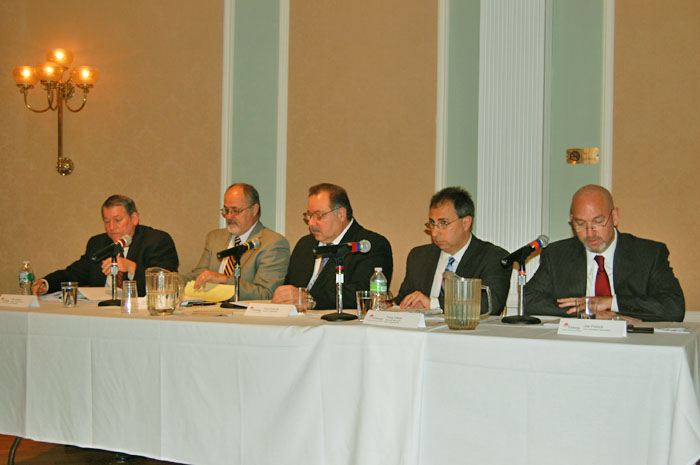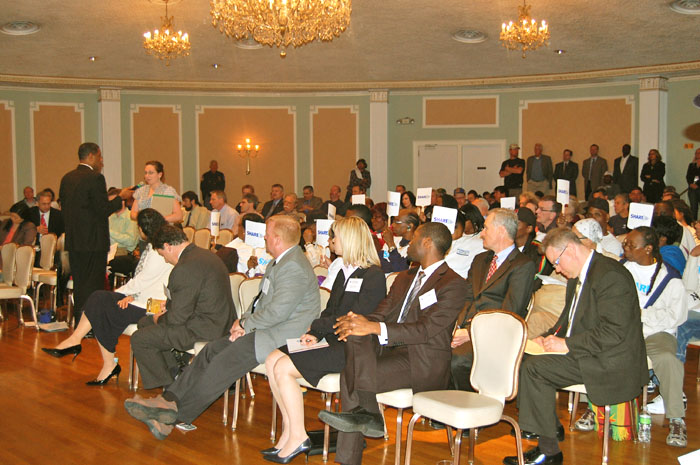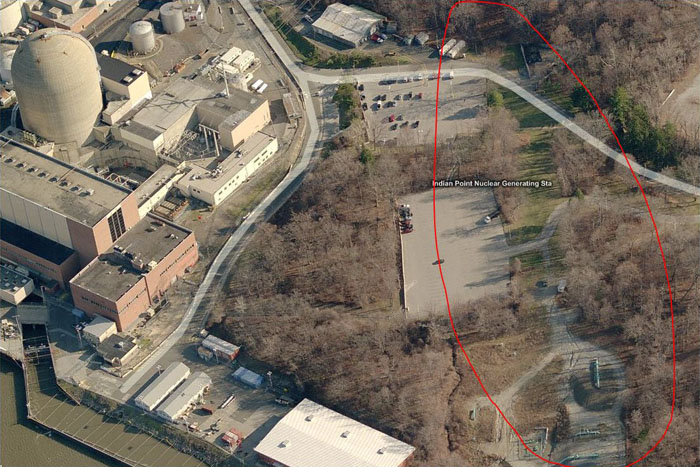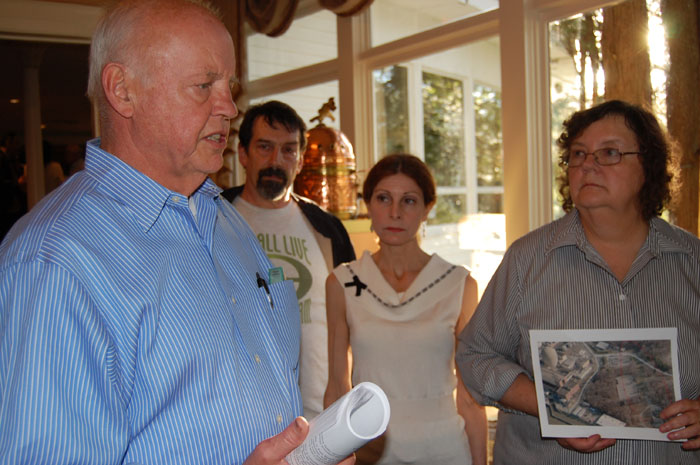|
"Two things of note happened at this
meeting: the NRC is now talking of monitoring underground pipes
with "non invasive methods." It was not clear to me how this
will work. Sam Collins stated that Indian Point could not be relicensed without a water quality certificate.
My best guess is
that they will find a way to change the requirements, despite
what was said."

Cast of Nuclear Regulatory
Commission (NRC) Characters
Dear All,
Here is a brief and belated report on the last NRC at Colonial
Terrace. First of all, many thanks to those who came and set
through yet another meeting where the regulatory body and the
company it is supposed to regulate are hard to tell apart. It
was important for the NRC to see that this is still a critical
issue for our community and to know that they are being actively
watched in their decision making process by an informed
citizenry. We made a good showing.
Many men from the International Brotherhood of Carpenters
Local
11 and
Local 424 also attended. I spoke to two of them at some length
when they stopped by our information table. They were both
amiable and somewhat curious. Both listened and one took some
brochures to read, and, as he said, to show his wife so that she
would know that he really was at a union event. They came by
straight from their work in Croton and the union provided them
with dinner and a tee shirt. When I asked them why they came
they were rather vague and spoke of supporting union brothers at
Indian Point. Interestingly, no union members from Indian Point
were there. There has always been talk of how union members are
paid to attend these events and someone said as much during the
question and answer session. One of the union organizers
replied with great indignation that no one received any pay for
coming and that his men would much rather be at home eating a
good home cooked meal. Technically he was correct, however as
with all things nuclear the devil is in the details.
As it turns out, some unions in this area have a clause in their
contract that stipulates members are required to attend two
events per year. They have to "get their ticket punched" to
prove they attended a certified event or else must pay a $500
fine at the end of the year. Another clue that this was not
entirely voluntary was they way they all made for the door the
minute the presentations were over while everyone else settled
in for the Q and A. If you missed the Daily News article (pdf) about
how the Bronx comes to Westchester which was distributed on the
listserv after the event, it is well worth reading for the
details on just how this works.
We held a press conference prior to the meeting and nuclear
expert Paul Blanch joined us. He has followed Indian Point
closely over the years and has many concerns about safety
issues. He is also most concerned about the natural gas pipe
line that runs above ground about 100 yards from Indian Point
2. If there was a catastrophic accident at the reactor, chances
are it could involve the gas line. Conversely, blowing up the
gas line could damage the containment building and as the
volcano in Iceland has shown, in reality smoke does not follow
the nice neat pie wedge patterns that Entergy has delineated in
their phony evacuation plan.
For the first time mention was made of "non intrusive" ways to
inspect underground pipes that have been out of sight for
decades. Regional Director Sam Collins admitted that NRC regs
might not be adequate for underground pipes. He also stated
that the license could not be renewed without a water quality
certificate. Entergy is currently appealing the DEC decision to
not issue one and is waging a mighty pr campaign for wedgewire
technology which they claim is superior to closed cycle cooling.
Wedgewire was designed as screening for plants on lakes, not
fast moving rivers, neither does it do anything about thermal
pollution that is so deadly to the ecosystem. The DEC opinion is
a strong one based on science and is one we all need to support
so that Entergy does not win in the court of public opinion.
Speak up about this every chance you get!
One final note: candidates are already mobilizing for the fall
elections. Make sure you know who is running in your community
and make it a point to ask them about Indian Point.
Sincerely,
Marilyn Elie
eliewestcan (at) gmail.com |

|



